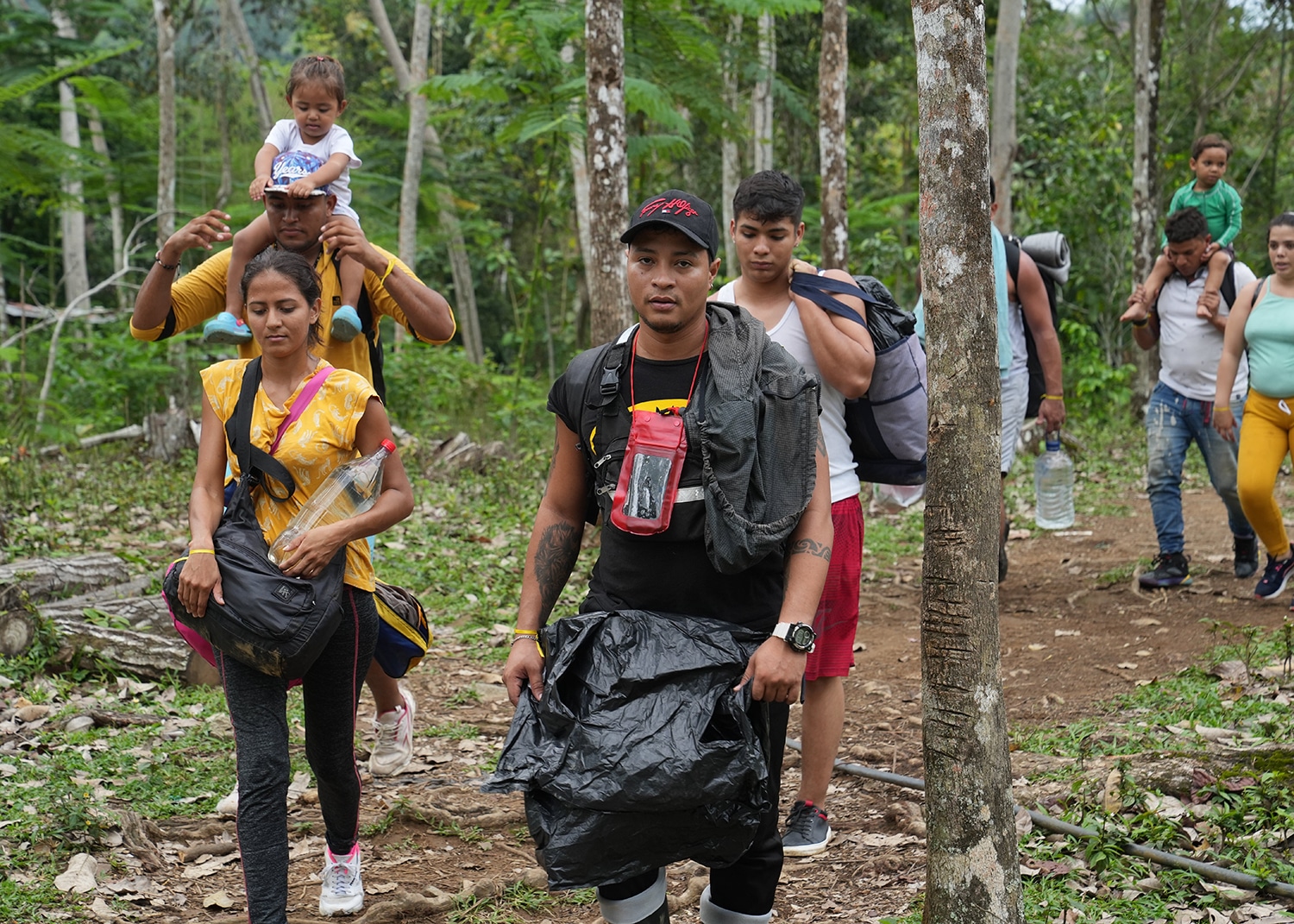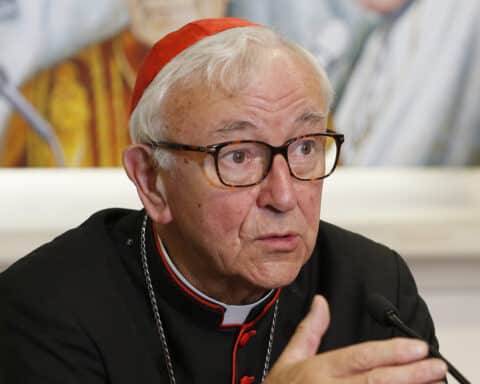(OSV News) — As bishops from Colombia, Costa Rica and Panama visited two migrant camps on the northern edge of the Darién jungle, Pope Francis called the treacherous trek to a better life the migrant via crucis.
The “human caravan passes through the Darién Gap, a jungle that is a triumph of nature, but which today has become a real via crucis,” the pontiff wrote in a March 19 message to the bishops as they met in Panama March 19-22.
Pope Francis warned that the crisis in the Darién Gap “not only highlights the limits of migration governance in the Western hemisphere, but also feeds a thriving business that allows for the accumulation of illicit profits from human trafficking.”
Visiting the migrant camps was an initiative called “Easter with our migrant brothers and sisters” during the meeting of the border bishops of Colombia and Costa Rica and the bishops of Panama. The prelates called on governments in Latin America to “respect the fundamental rights” of migrants and refugees who are transiting through their territories as they head to the United States.
Ways to be closer to migrants
In a statement issued March 22, the Church leaders also said they will try to find ways for their dioceses to be closer to migrants and called on the nations where the migrants are headed to come up with public policies that “facilitate their economic, social and cultural integration, and knock down the legal and physical barriers” faced by millions of migrants and refugees.
The statement from the bishops topped off a gathering in Panama, where members of the clergy and Caritas officials met to analyze the humanitarian crisis that is unfolding in the Darién Gap, the dense and roadless jungle that separates South America from Central America.
Dangers
In 2023, the number of migrants crossing the Darién on their way to the United States doubled, with 520,000 people making the dangerous trek across the jungle.
While this route has become increasingly popular for migrants from South America, Africa and Asia, it continues to be dangerous and migrants who cross the Darién are regularly exposed to tropical diseases, robberies and sexual assaults along the three-to-five-day trek. Dozens of migrants also drown each year while trying to cross the jungle’s treacherous rivers.
Despite these dangers, Panama recently reduced medical support for migrants who survive the route, by suspending the operations of the medical group, Doctors Without Borders, known by the French acronym MSF.
The organization had been attending up to 5,000 migrants per month at its health posts on the northern edge of the Darién jungle, but it fell out of favor with Panama’s government after issuing a press release in which it claimed that officials were allowing criminal groups in the region to operate “with impunity.”
“Some of the migrants told us that they are still getting medical help from the Red Cross” Margaret Cargioli, a human rights lawyer who visited the Lajas Blanc camp earlier in March, told OSV News. “But what people there told us, is that now there is less medical support.”
Church needs to increase its leverage on policies
In their March 22 statement the bishops from Panama, Costa Rica and Colombia said the Church needs to increase its leverage on the policies that governments are taking toward migrants.
“As the Church, we have the responsibility to have a political impact,” said Bishop Mario de Jesús Álvarez Gomez of Istmina-Tadó, Colombia. “But how are we going to do that? By sticking to the teachings of the Gospel and following our country’s constitutions.”
Church leaders said that during their March 19-22 meeting, they also discussed the possibility of creating ministries for human mobility within their dioceses, and also looked at the need to train the members of Caritas to deal with issues pertaining to migration.
Church accompanies those who are suffering
“The Church’s essence and vocation is to accompany all those who are suffering” said Bishop Daniel Francisco Blanco Méndez of San Jose, Costa Rica, during the press conference following the Darién Gap visit. “That is why we must think about how we can be closer to these painful situations (of forced migration) that many of our brothers and sisters are going through.”
Father Rafael Castillo Torres, director of Caritas Colombia, said that while Caritas workers in his country had “compassion and goodwill,” they needed better training on how to provide legal and humanitarian support to migrants.
Archbishop José Domingo Ulloa Mendieta of Panama City said that setting up support services for migrants would be a “great challenge” for parishes in his country. But he encouraged them to undertake this task.
“When we talk about migrants, we talk about our own spirituality” the archbishop said. “When we welcome migrants, we are building the city of God with justice and solidarity.”
The bishops also said a message to migrants had been sent to them by Pope Francis and read in the refugee camp by the apostolic nuncio to Panama, Archbishop Dagoberto Campos Salas.
“Don’t forget about your human dignity,” the message read. “Don’t be afraid to look others in the eyes, because you are also part of the human family. And you are also children of God.”
Bishops and pastoral agents, the pope said, are like “the Veronica, who with affection offers relief and hope in the migration’s via crucis,” and “the face of a mother Church, that marches with her sons and daughters.”





